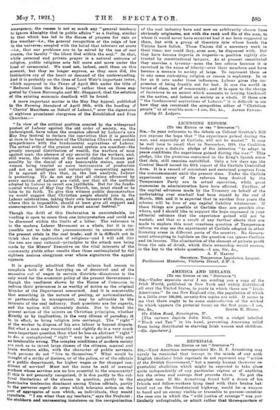LICENSING REFORM.
[To ME EDITOR OF THE " Eine/tune.") Sia,—In your reference to the debate on Colonel Gretton's Bill you express the hope that " the experience gained during the war, and especially at Carlisle, will not be wasted." It may be well here to recall that in November, 1918, the Coalition leaders gave a definite pledge of the intention "to adapt to peace conditions the experience gained during the war." This pledge, like the promises contained in the King's Speech since that date, still remains unfulfilled. Only a few days ago the Control Board issued its fifth report of the Carlisle Controlled Area. It is a record of consistent and sustained progress from the commencement until the present time. Under the Carlisle experiment many of the reforms long desired by the Temperance Party are in actual operation, while great economies in administration have been effected. Further, of the capital advances made by the Treasury on behalf of the undertaking over one-half had been repaid by the end of March, 1920, and it is expected that in another four years the scheme will be free of any capital liability whatsoever. .1f these things are possible at Carlisle they are possible else- where, and I should like to support the hope expressed in your editorial columns that the experience gained will not be wasted; and that as a result of any further efforts that are made to explore this most vexatious question of Temperance reform we may see the experiment at Carlisle adopted in other licensing areas in different parts of the country. No Govern- ment attempting to legislate on the question can ignore Carlisle and its lessons. The elimination of the element of private profit from the sale of drink, which State ownership would ensure, is the key to the whole question.—I am, Sir, &c., A. F. HARVEY (Secretary. Temperance Legislation League). Parliament Mansions, Victoria Street, S.W.1.


































 Previous page
Previous page